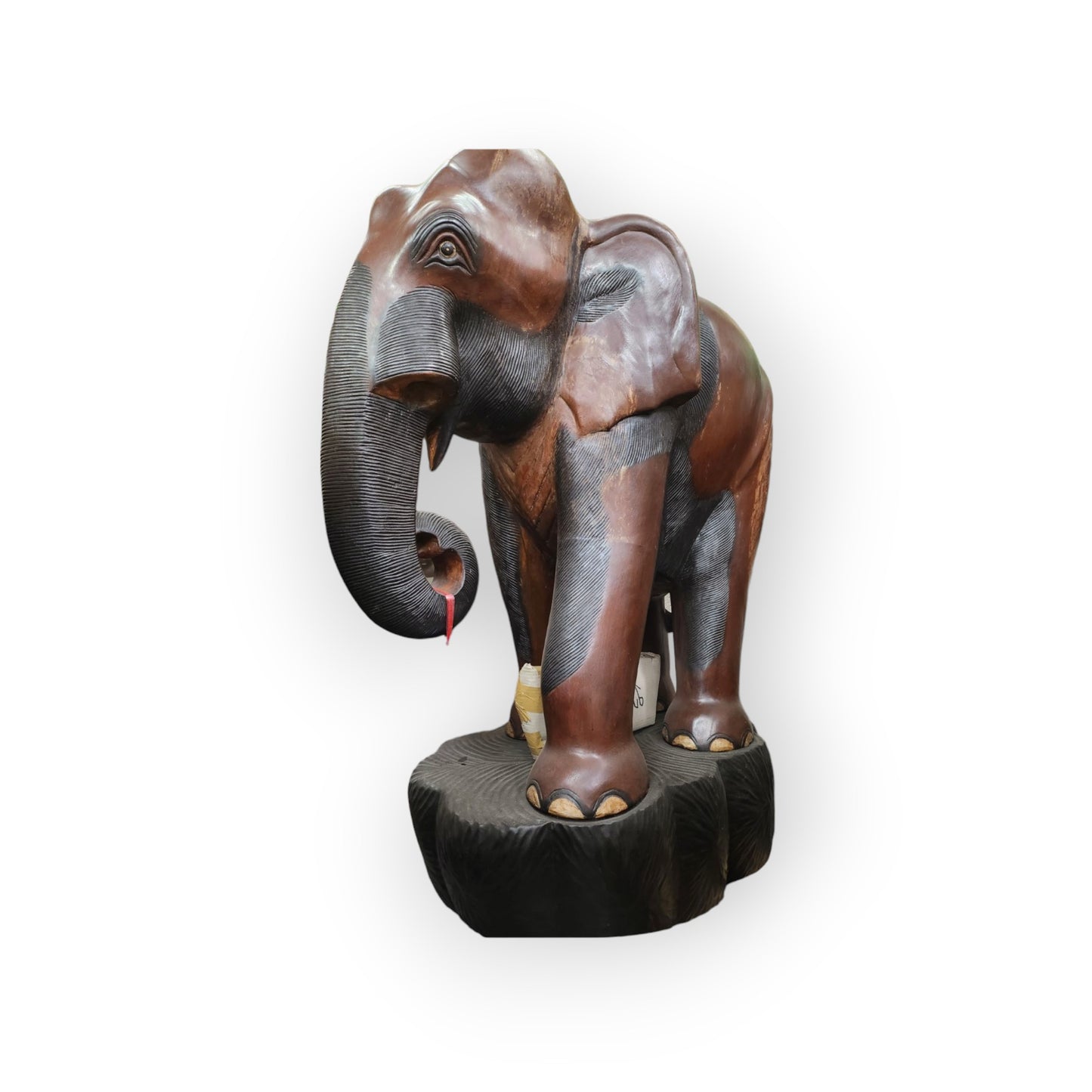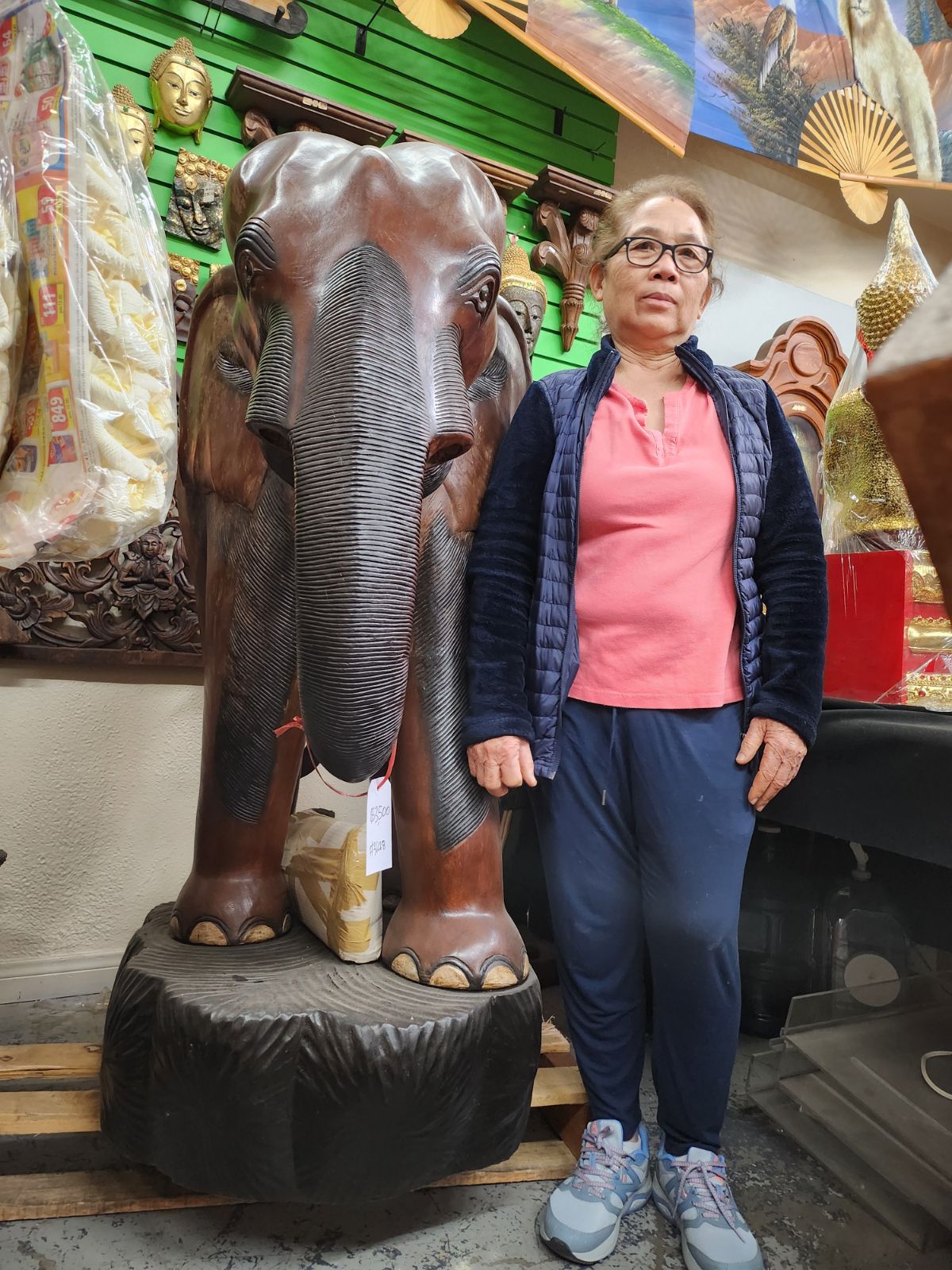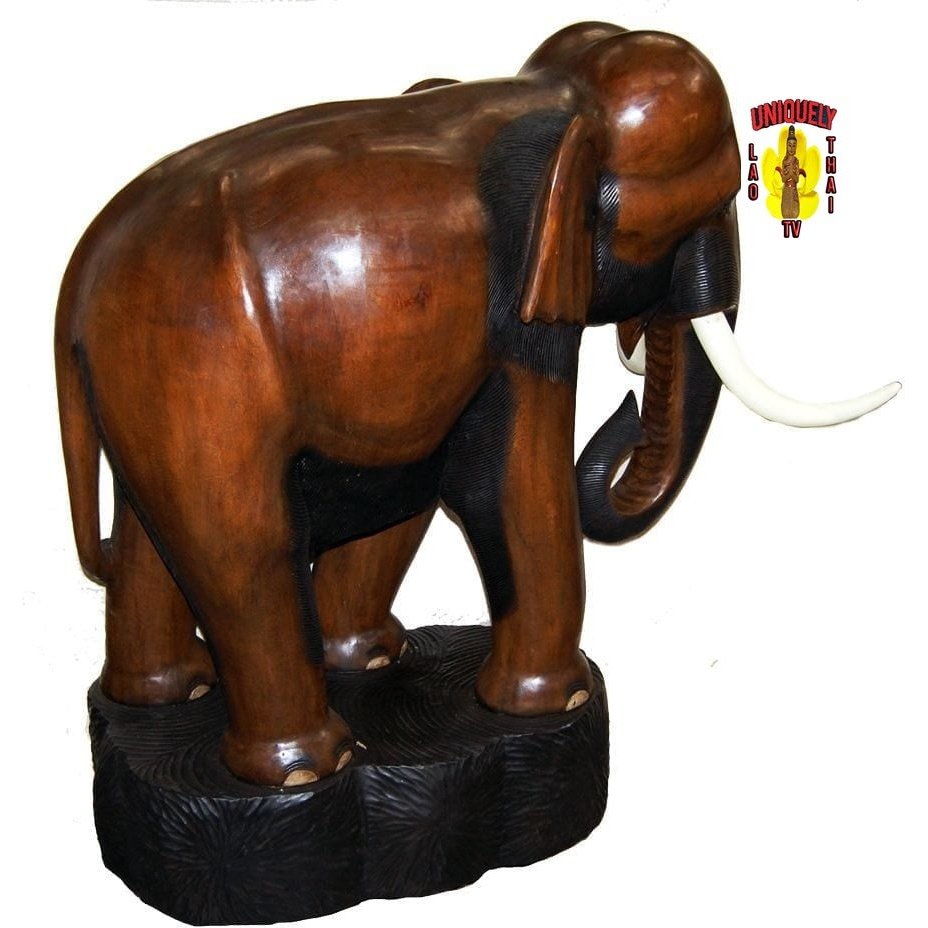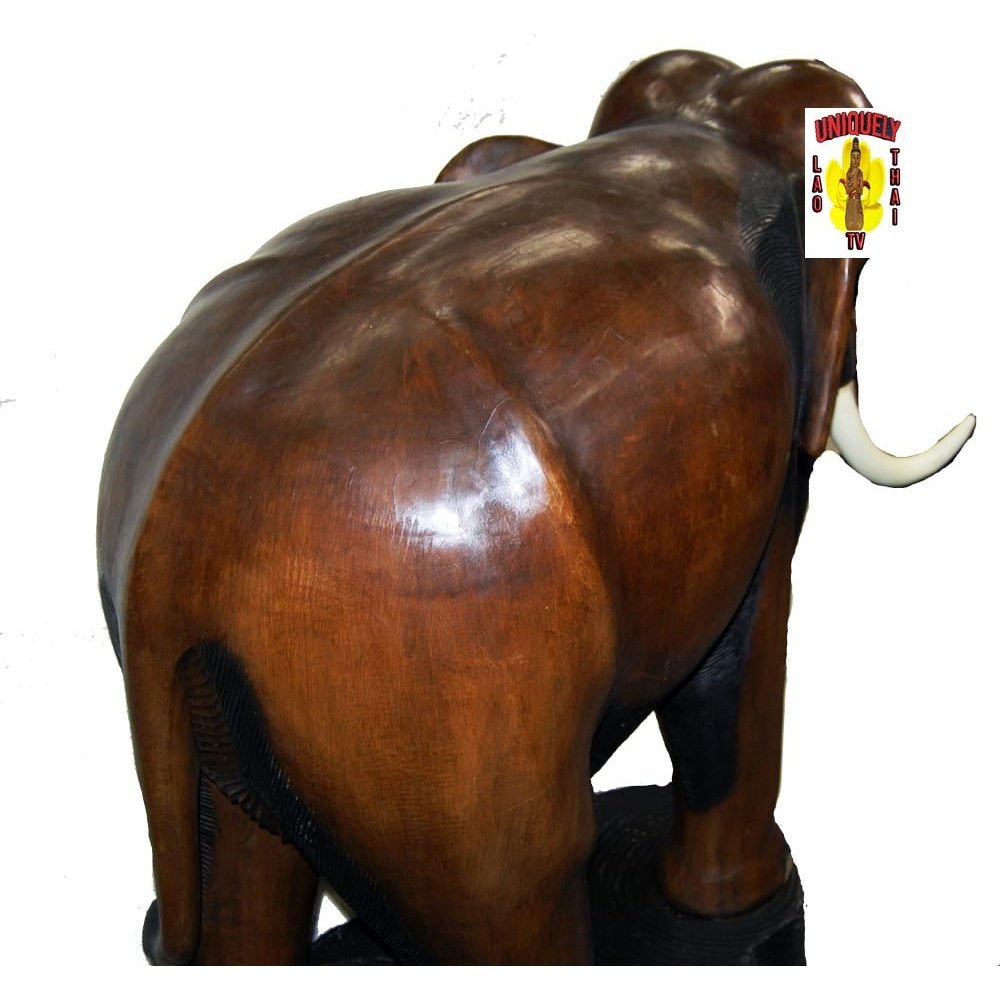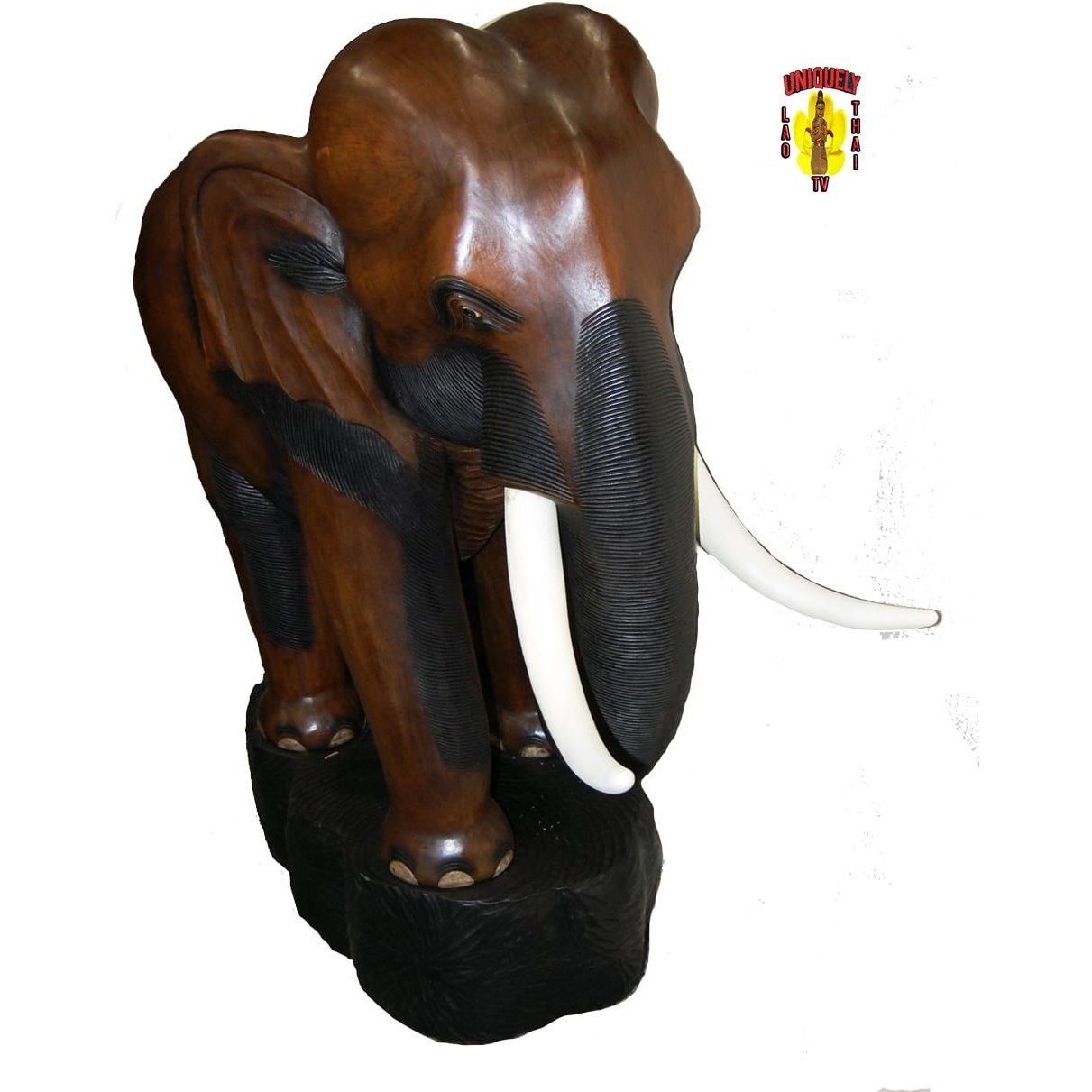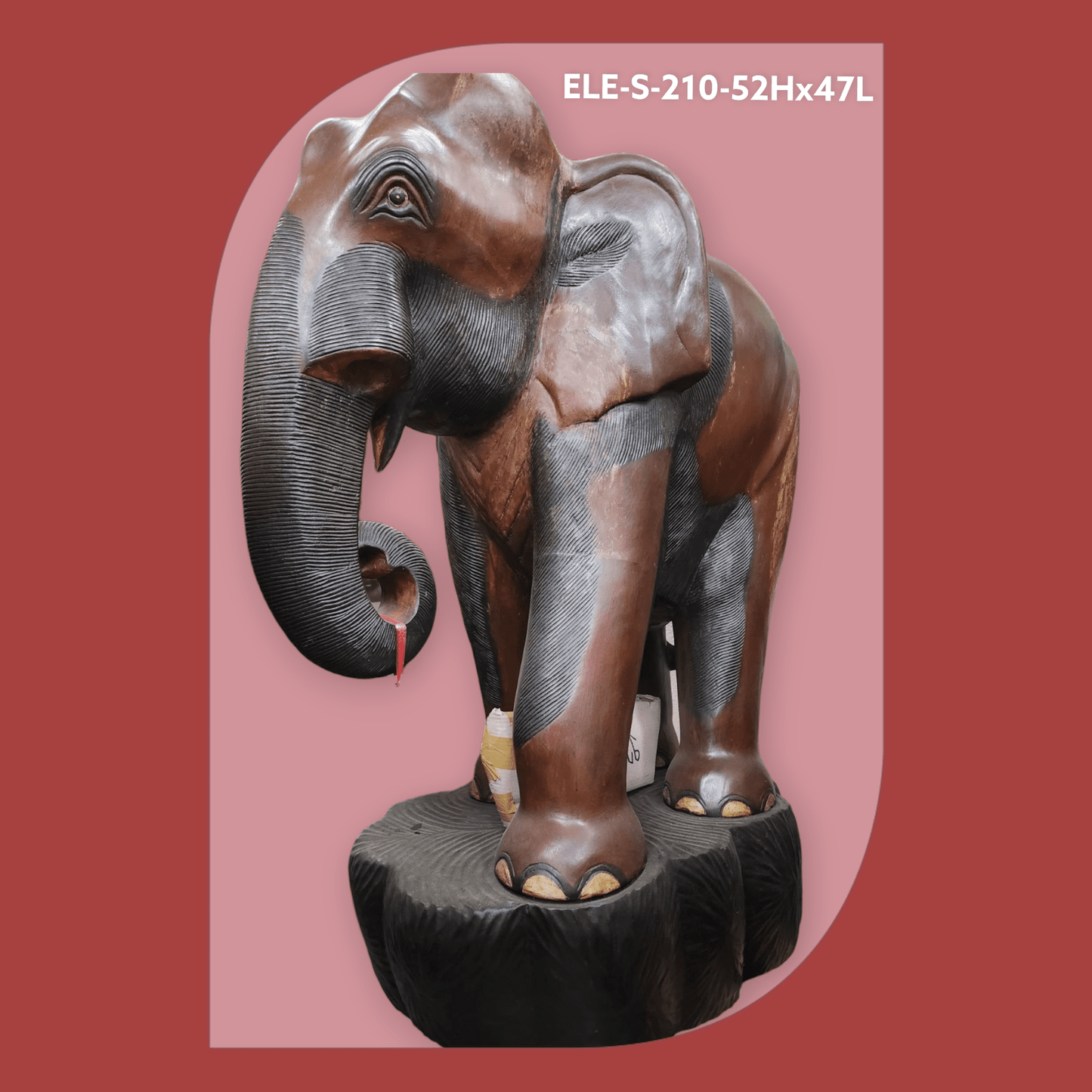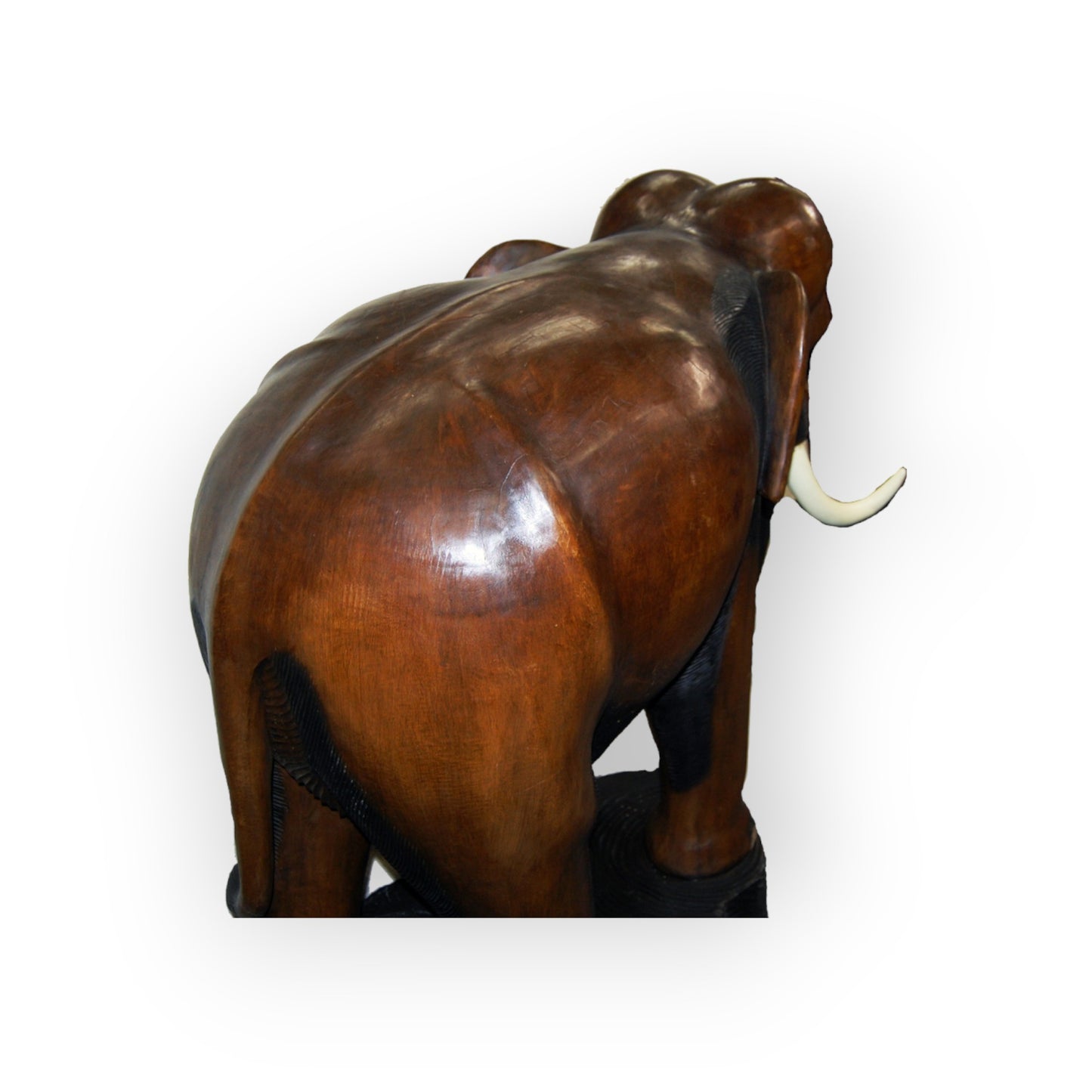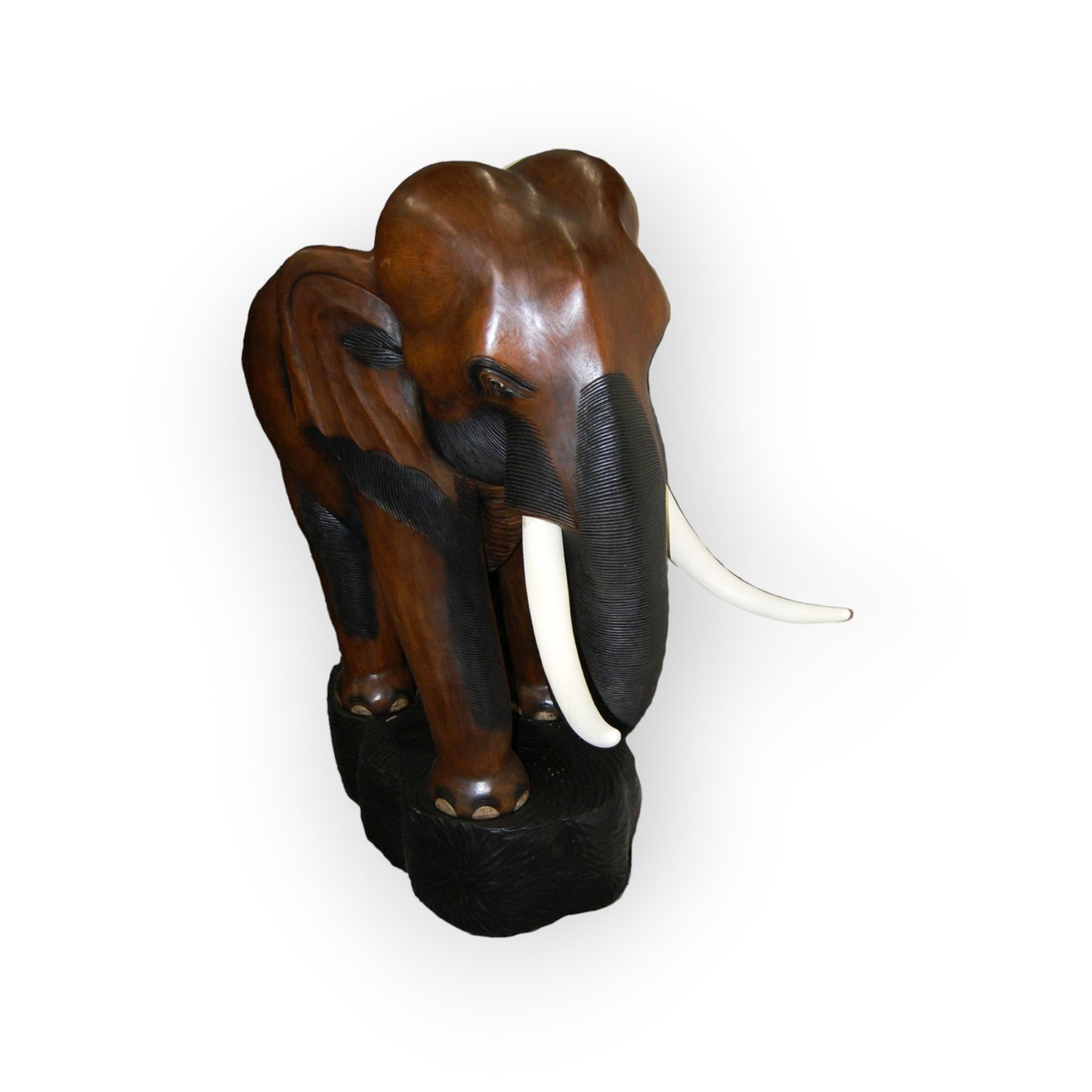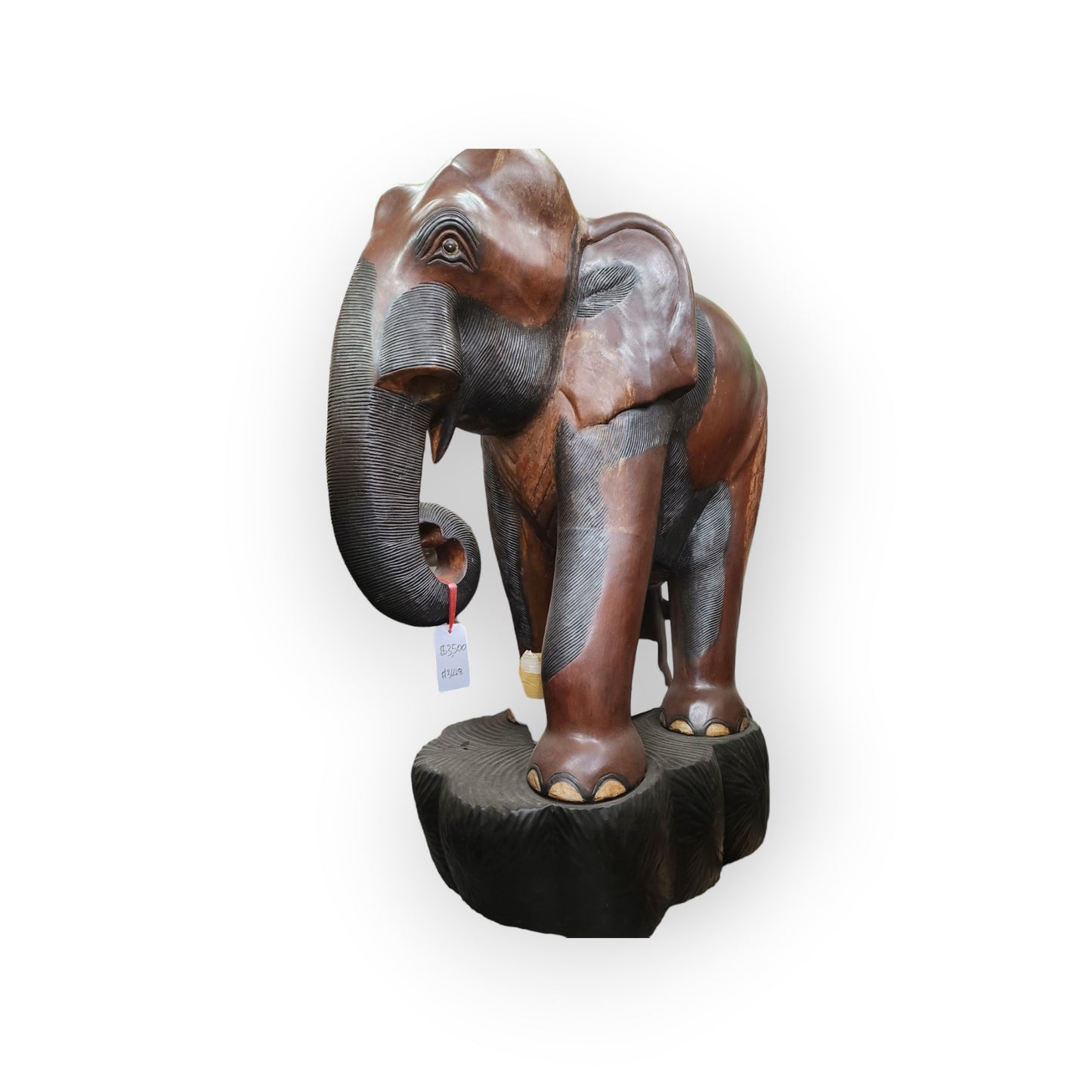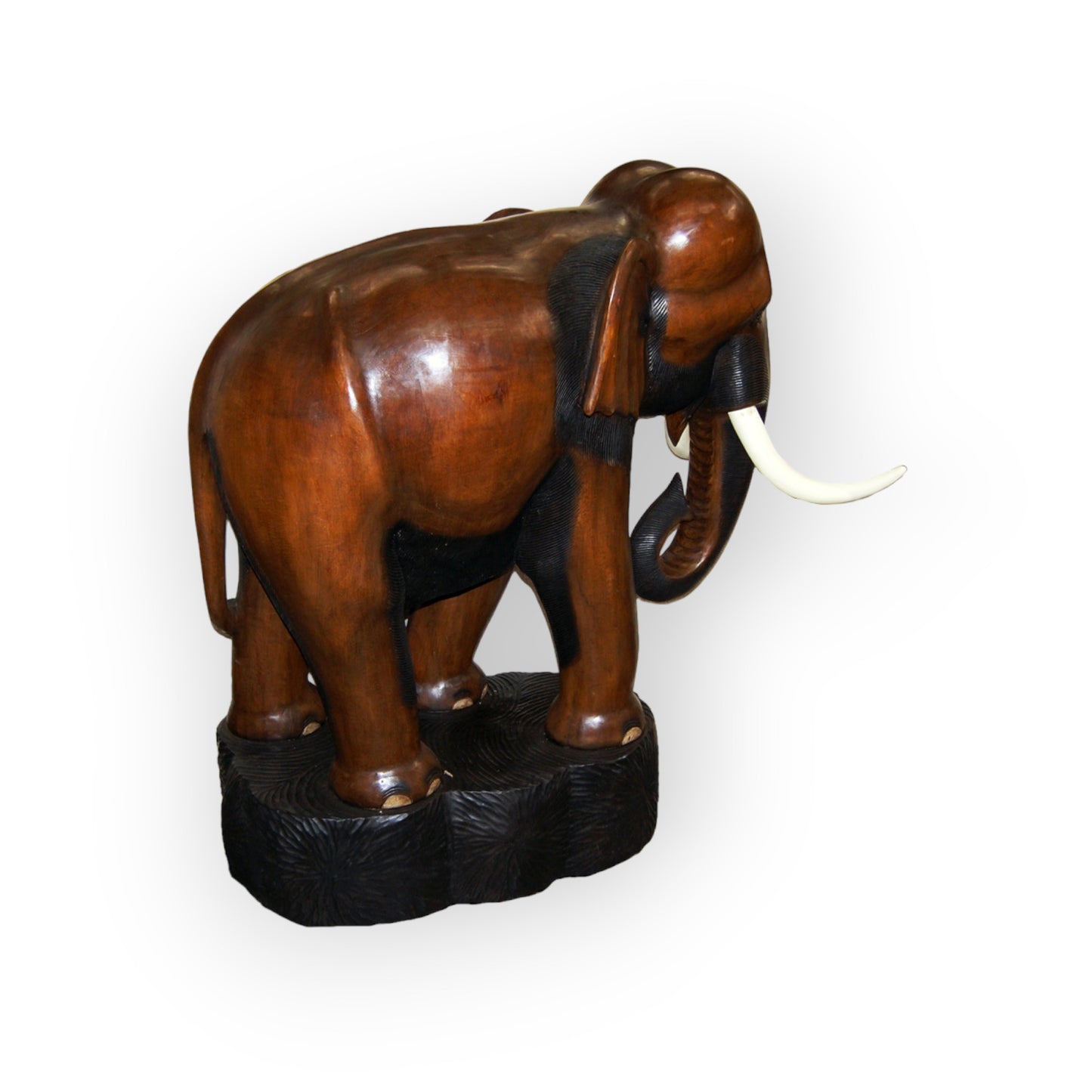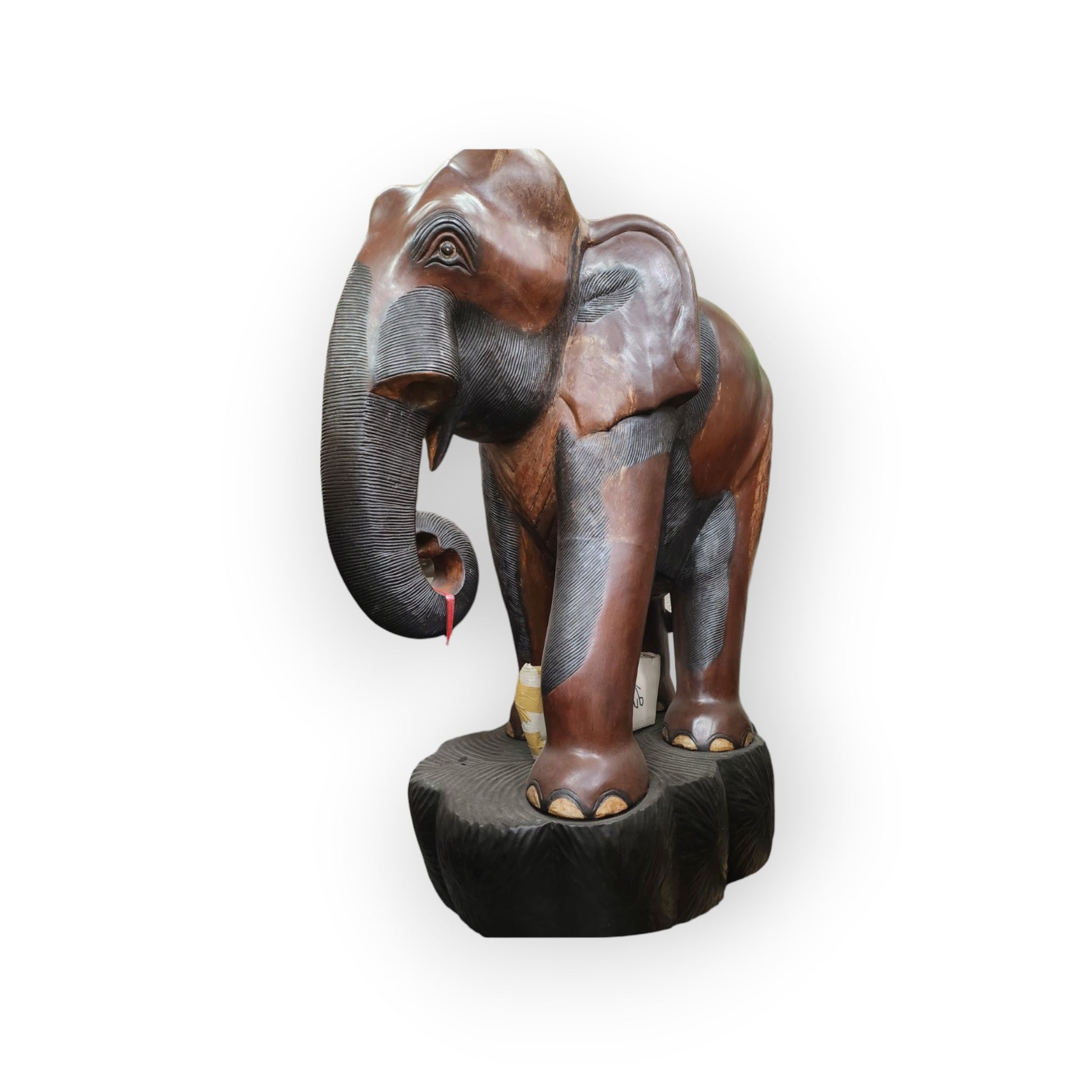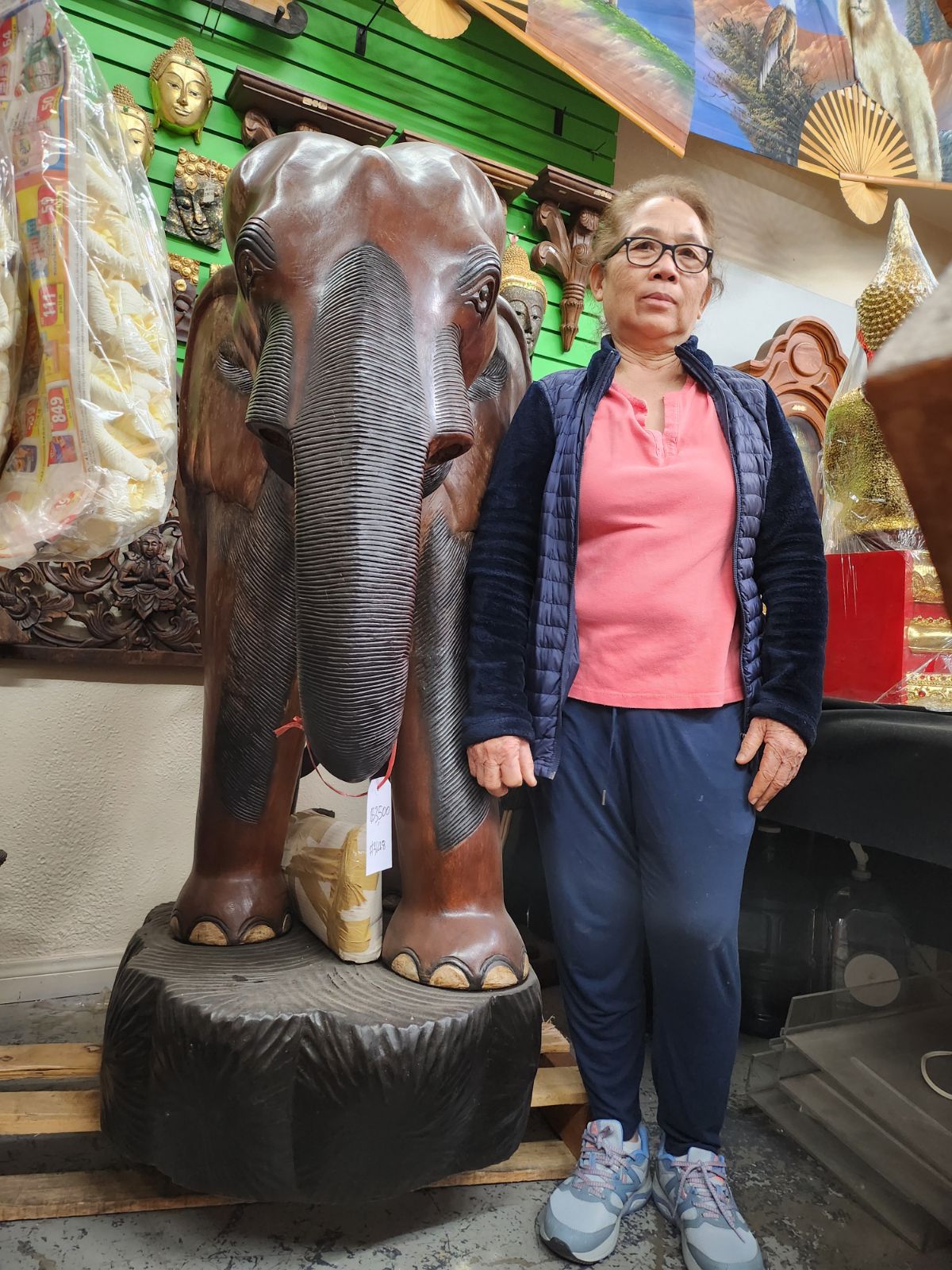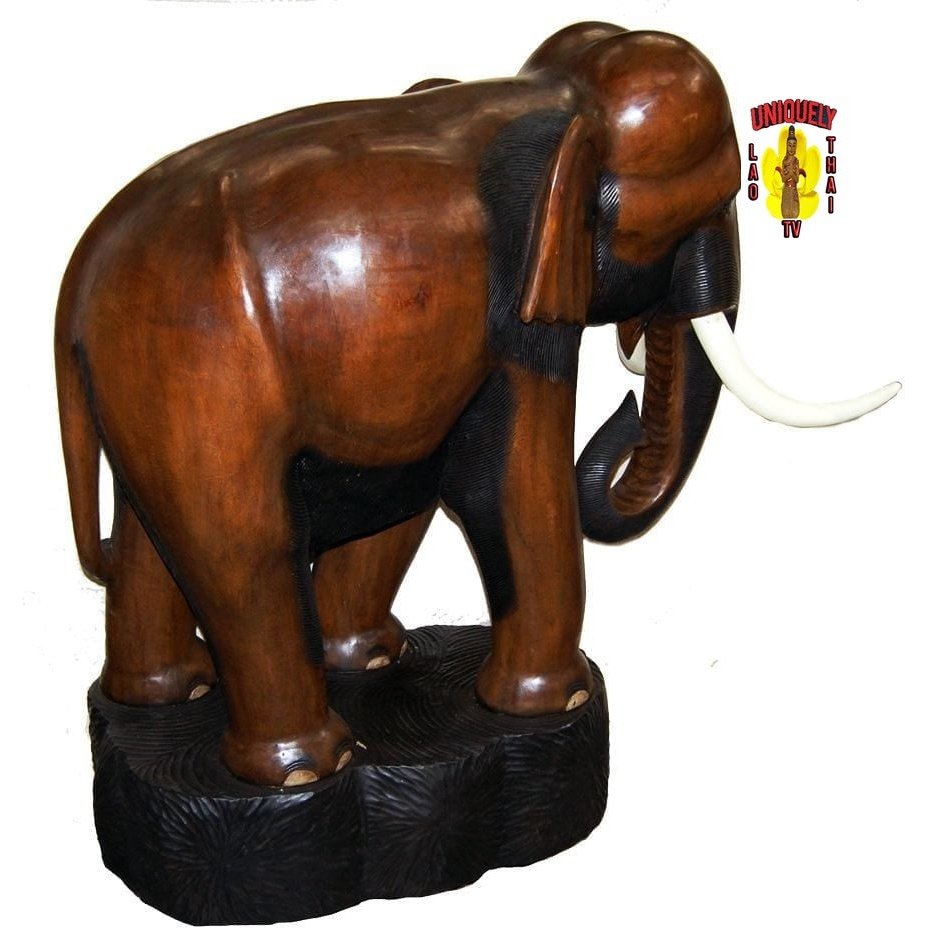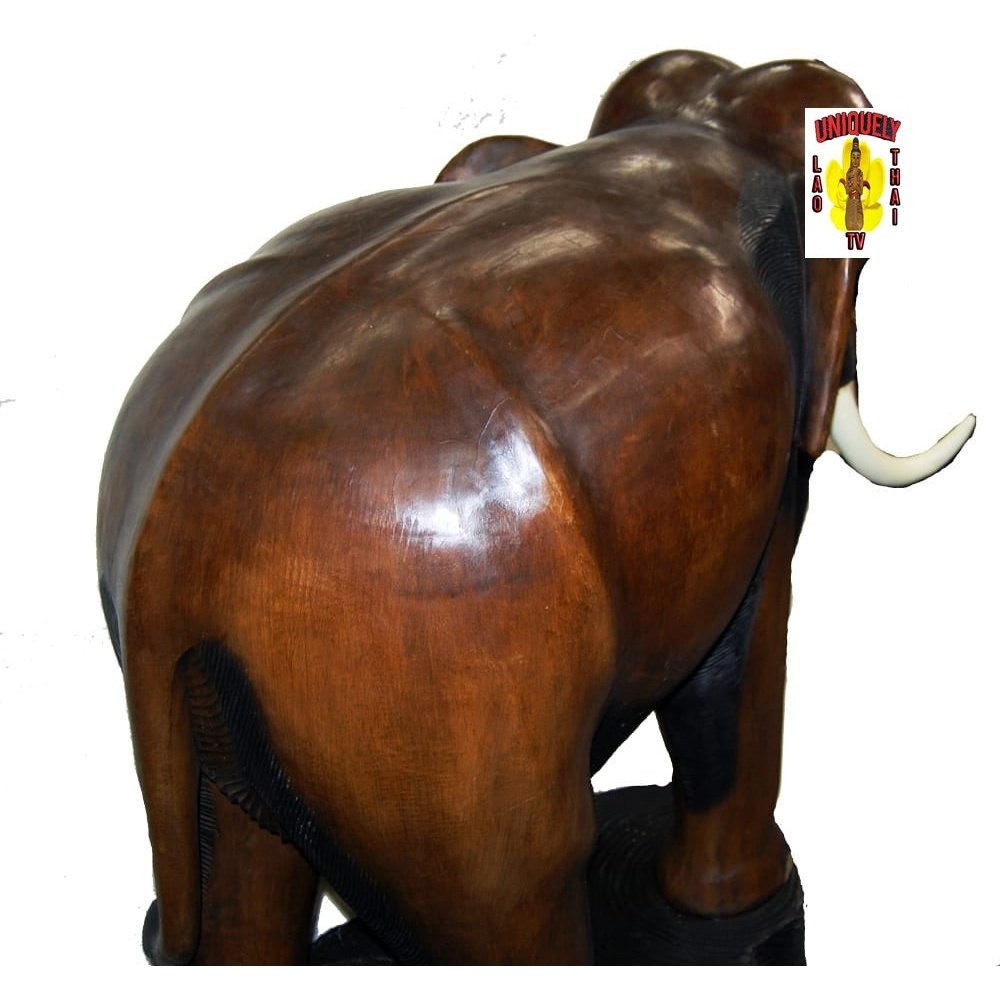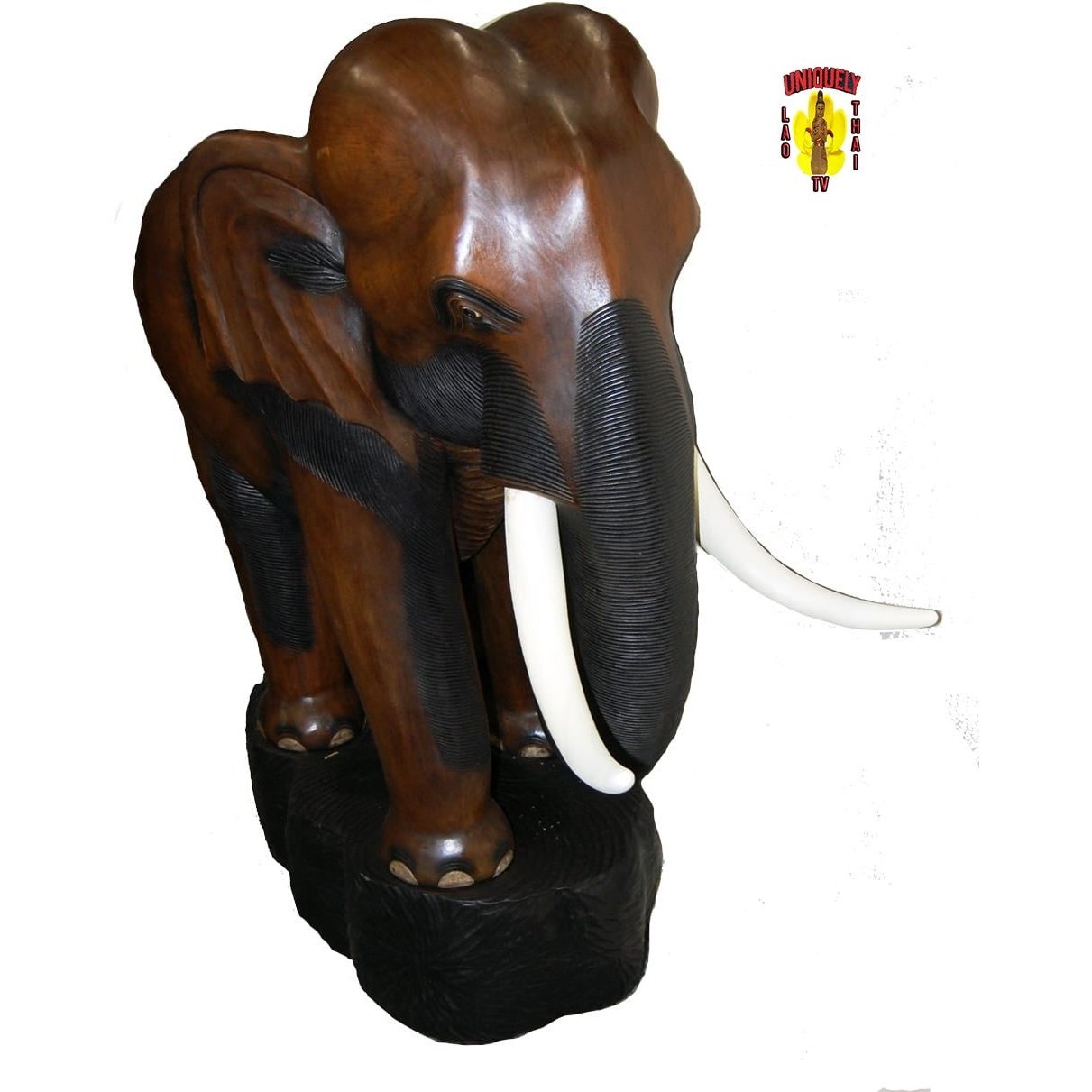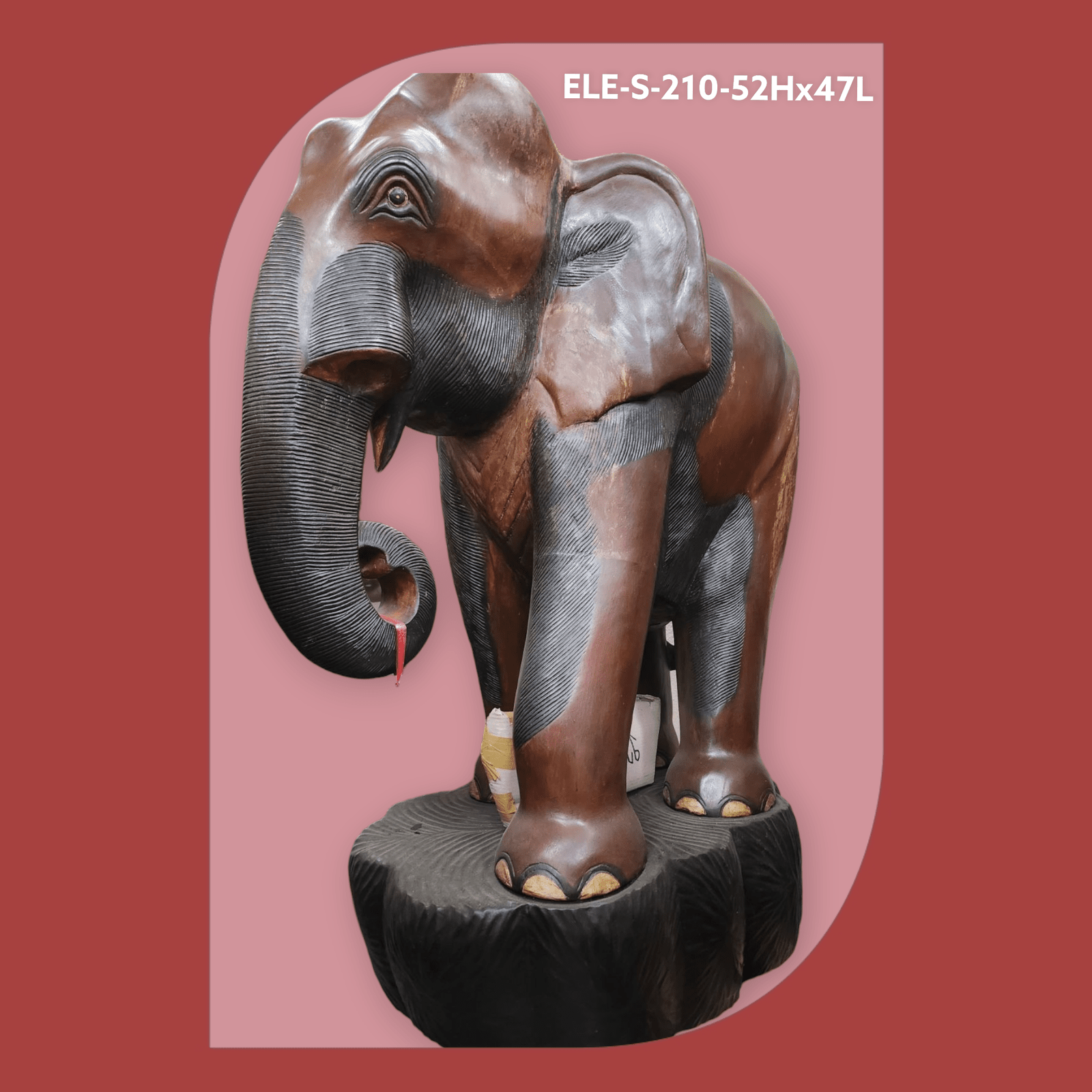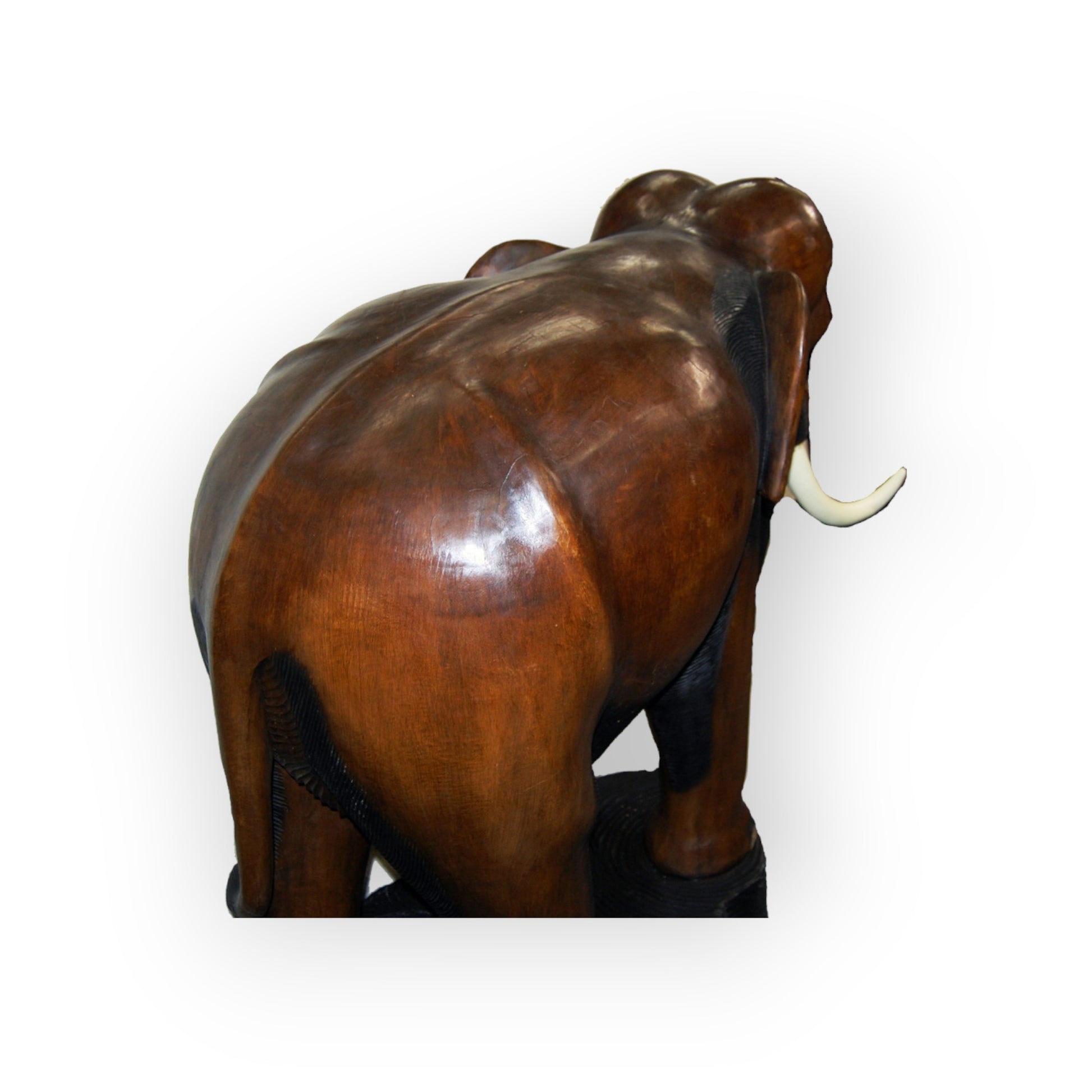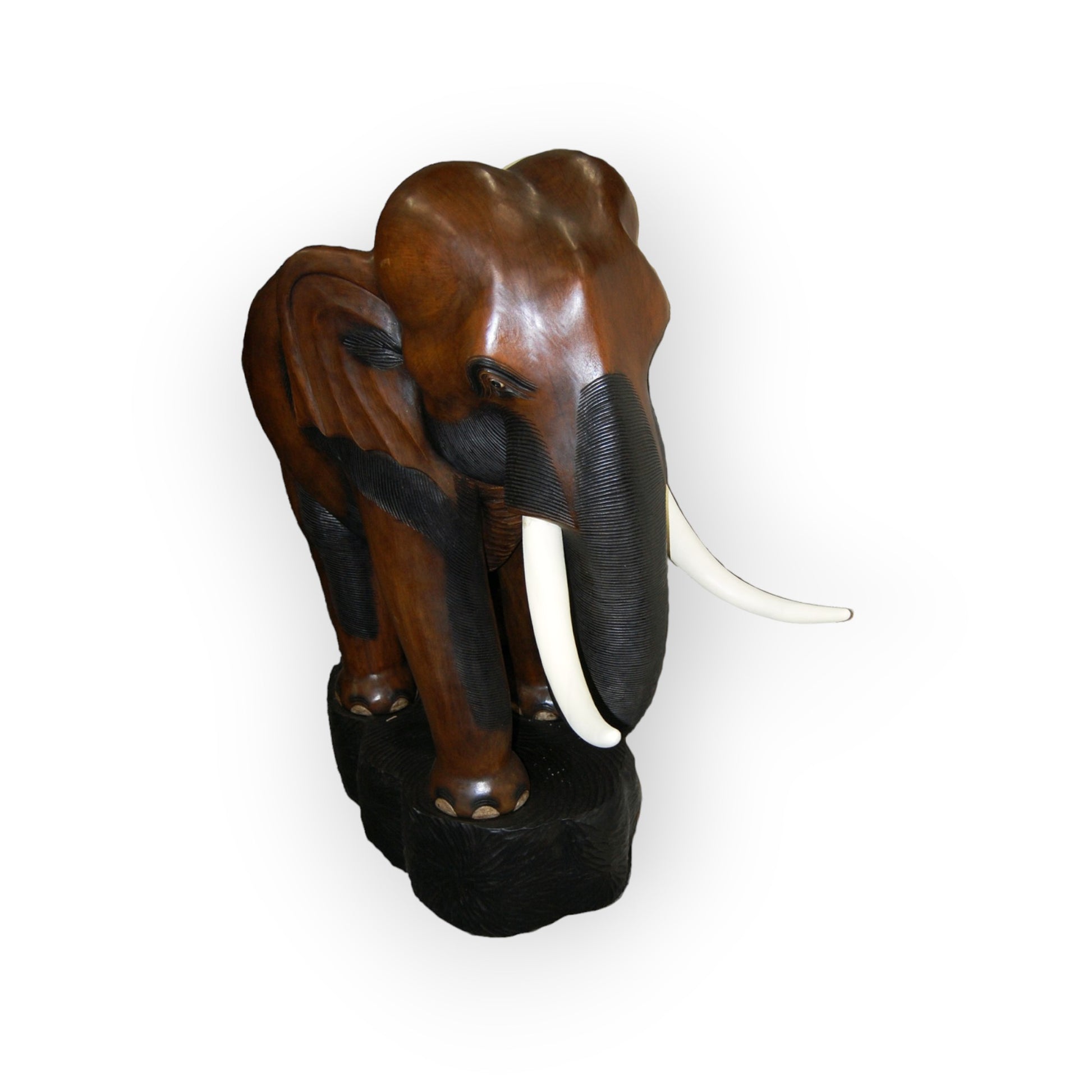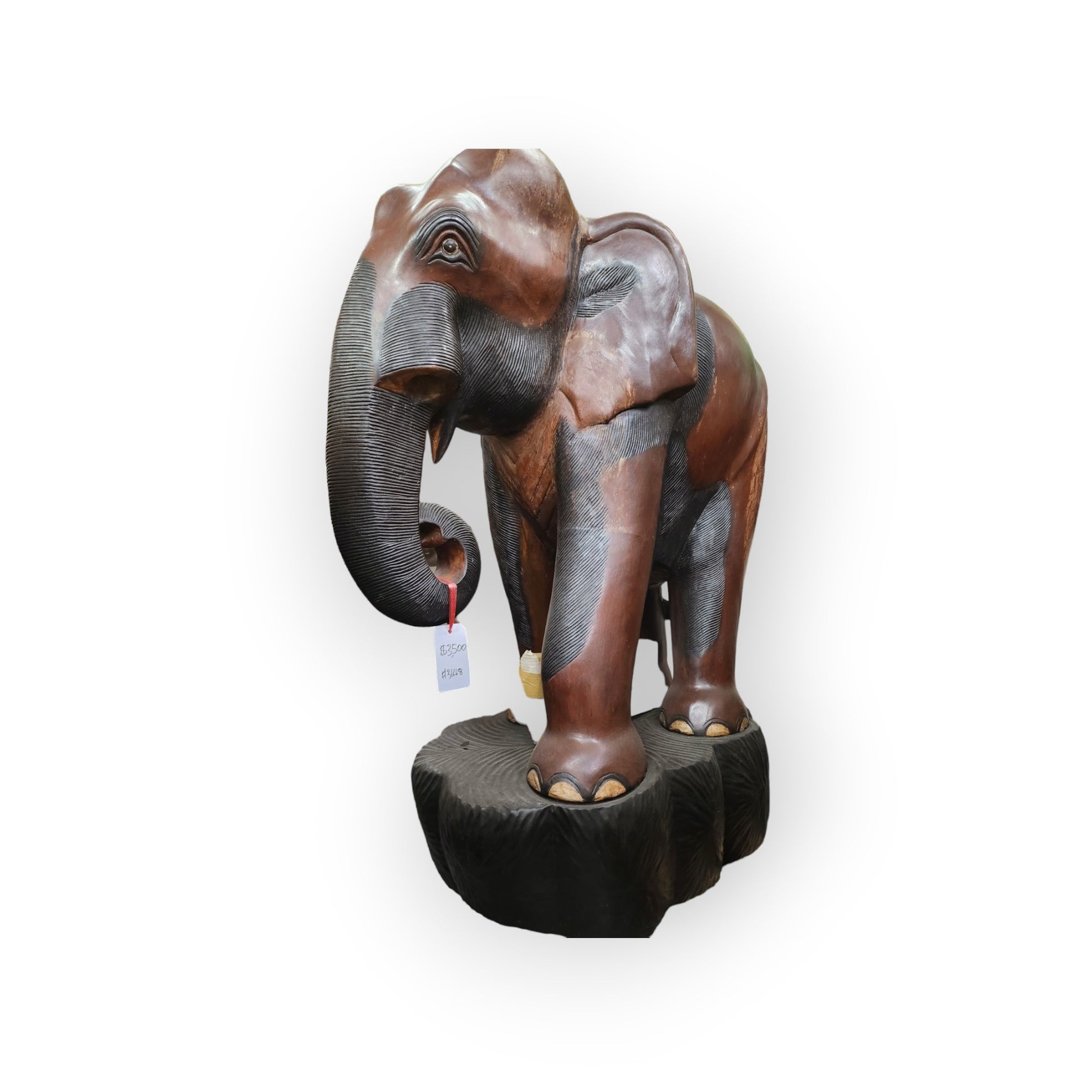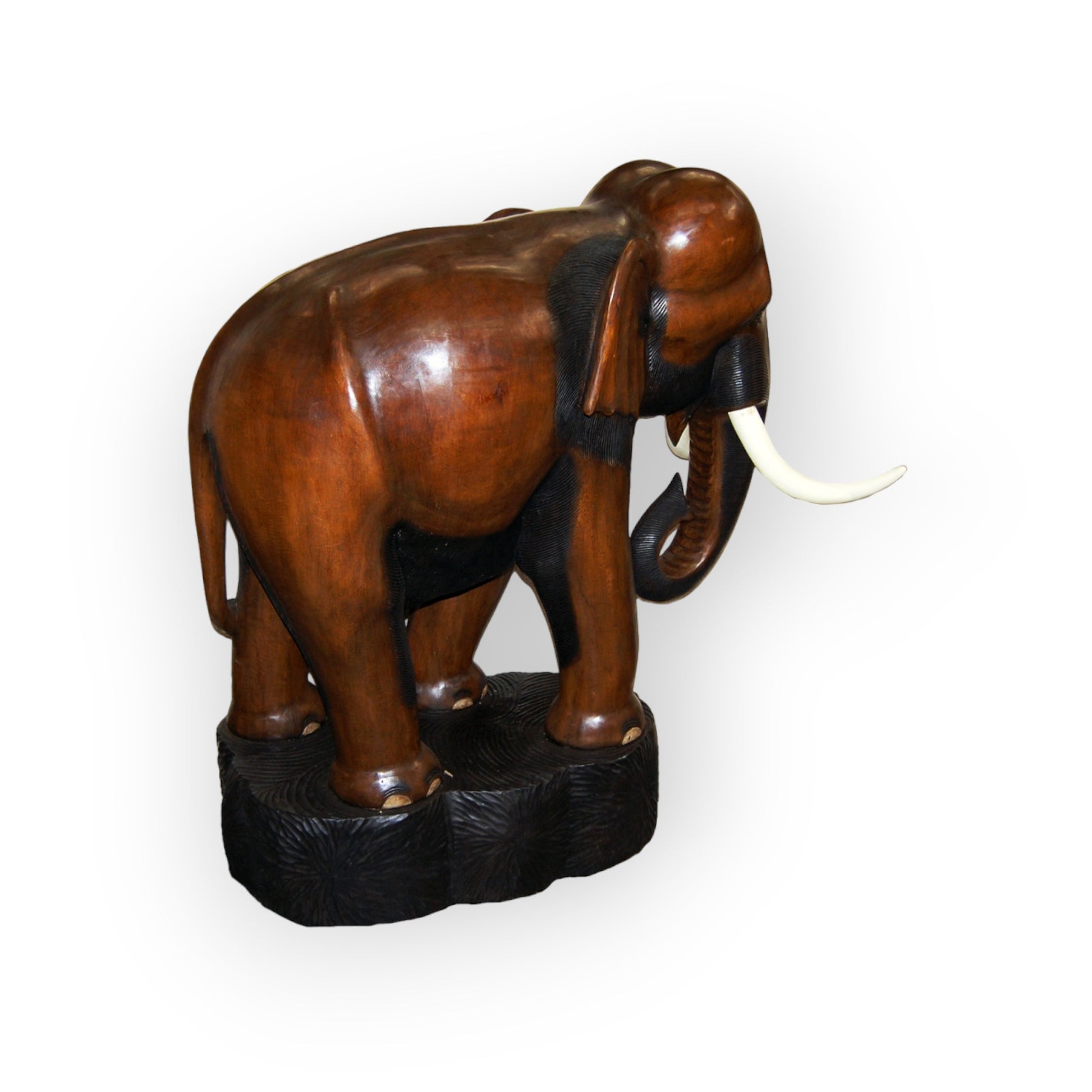Large Wooden Elephant 52" Tall x 47 Long
Large Wooden Elephant 52" Tall x 47 Long
SKU:ELE-S-210-52Hx47L
Couldn't load pickup availability
From intricately designed temples to one of Thailand‘s most famous beers, elephants in Thailand certainly have quite a reputation. Chang, meaning elephant, is Thailand’s national animal. Find out how this came to be. There are several reasons why this giant animal was chosen as Thailand’s national symbol, a key reason being that the Thai people celebrated the elephant’s incredible strength, durability, and longevity.
The white elephant (actually more pink in color) also symbolizes royalty in Thailand. According to Buddhist tradition, on the eve of Buddha’s birth, his mother had a dream and was given a lotus flower by a white elephant. The animal was revered and respected even on the Siamese flag until the early 1900s. Because white elephants were scarce, they were only used for royal duties.
History of the Elephant in Thailand
The elephant’s role in Thailand began as early as the late 1500s. The Thais took advantage of the elephants’ sheer size and strength to fight against the Burmese, Malays, and Khmer to protect the Kingdom. In addition to playing a part in Thailand’s battles, elephants were put to work across the country for generations. From hauling teak wood to logging the dense jungles in the north, elephants were used in place of machinery. Elephants were trained until about the age of 10 before being put to work, and they did not retire until about the age of 60.
To read more https://theculturetrip.com/asia/thailand/articles/how-the-elephant-became-thailands-national-symbol/
Low stock: 1 left
View full details